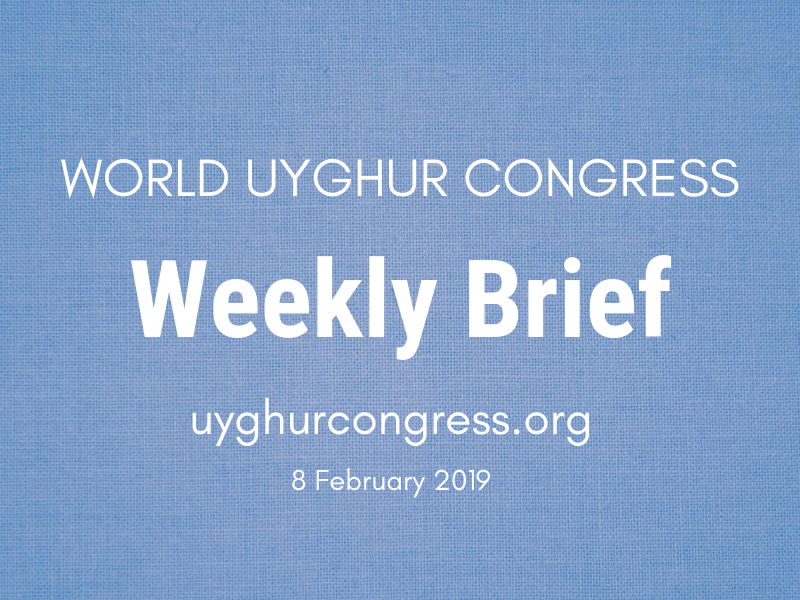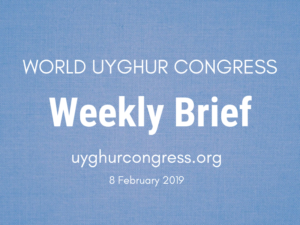Weekly Brief February 8th

World Uyghur Congress, 8 February 2019
 WUC, Human Rights Watch, Amnesty International and ISHR Call for UN Fact-Finding Mission to East Turkistan in Joint Statement and Press Conference
WUC, Human Rights Watch, Amnesty International and ISHR Call for UN Fact-Finding Mission to East Turkistan in Joint Statement and Press Conference
Global Protests Mark the 22 Anniversary of the Ghulja Massacre
The World Uyghur Congress issued a press release in remembrance of the victims of the Ghulja Massacre, on the 22nd anniversary of the incident where hundreds of Uyghurs were killed, arrested or wounded as Chinese security forces violently cracked down on peaceful Uyghur protestors. The date remains a watershed moment in terms of the treatment of Uyghurs in East Turkistan by the Chinese government, and foreshadowed the persecution that would last for years afterwards.
On February 5, 1997, thousands of Uyghurs gathered for a peaceful demonstration in the Ili prefecture city of Ghulja in East Turkistan in response to continued Chinese aggression and the prohibition of Uyghur social organizations, known as Mäshräp, from gathering for cultural events. The protests were immediately quashed by Chinese security forces leaving at least 100 dead and many more injured. Nearly 4000 would be arrested and of those, 200 would subsequently face the death penalty.
The Ghulja Massacre proved to be emblematic of the Chinese government’s treatment of the Uyghur people, as they saw many of their basic rights disappear entirely in the intervening years. The Chinese government chose to disregard legitimate grievances widely voiced by the Uyghur community, rather than developing a response that would take the rights of millions seriously. In this context, China’s decision to arbitrarily detain more than 1 million Uyghurs in political indoctrination camps and attempts to assimilate and socially reengineer the population is part of a decades-long process of repression and coercion.
To mark the anniversary, thousands of Uyghurs demonstrated in cities around around the world. The protests were held in the USA, Germany, France, Austria, Belgium, the U.K, Australia, Sweden, Turkey, Kyrgyzstan, Kazakstan and Japan. They honoured the victims of the massacre and demanded that the international community to take urgent action on the mass arbitrary detention of Uyghurs in internment camps.
Reports Indicate that Muslims in East Turkistan Forced to Eat Pork and Drink Alcohol
Chinese authorities in the northwestern region of Xinjiang are delivering pork to Muslim households during the Lunar New Year holiday, and forcing some Muslims to drink alcohol, eat pork, and display emblems of traditional Chinese culture, according to Radio Free Asia. This is just further evidence of China’s campaign of cultural assimilation

